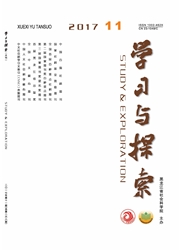

 中文摘要:
中文摘要:
技术进步能实现单位能源消费降低,但其带来的经济增长又引致能源消费的提高,此现象称为“回报效应”。以我国1978-2010年间资本存量、就业人数和能源消费等宏观经济变量为样本,以技术进步对能源消费“回报效应”为主线,通过协整检验和状态空间模型估算等方法,实证研究能源消费与经济增长。研究表明,在样本期内,技术进步对能源消费的“回报效应”值大多位于0-1内,即“替代效应”一般大于“收入效应”,并呈周期性递减趋势,即在我国技术进步对节约能源消费存在正效应。
 英文摘要:
英文摘要:
Technical progress can reduce the consumption of unit energy, but the economic growth brought leads to the increase of energy consumption, which is called return effect. This article takes the macroeconomic variables such as capital stock,employment figure and energy consumption from 1978 to 2010 of china as samples,takes the rebound effect of technological progress to energy consumption as principal line, through the methods like co-integration test and state space model to estimate,studies the relationship between and economic growth empirically. The research shows:in the sample period,most of the value oF'rebound effect" is in 0-1 ,meaning the "substitution effect" generally greater than "income effect", and has a cyclical decline trend,namely technology progress has positive effect on the saving of energy consumption in china.
 同期刊论文项目
同期刊论文项目
 同项目期刊论文
同项目期刊论文
 期刊信息
期刊信息
